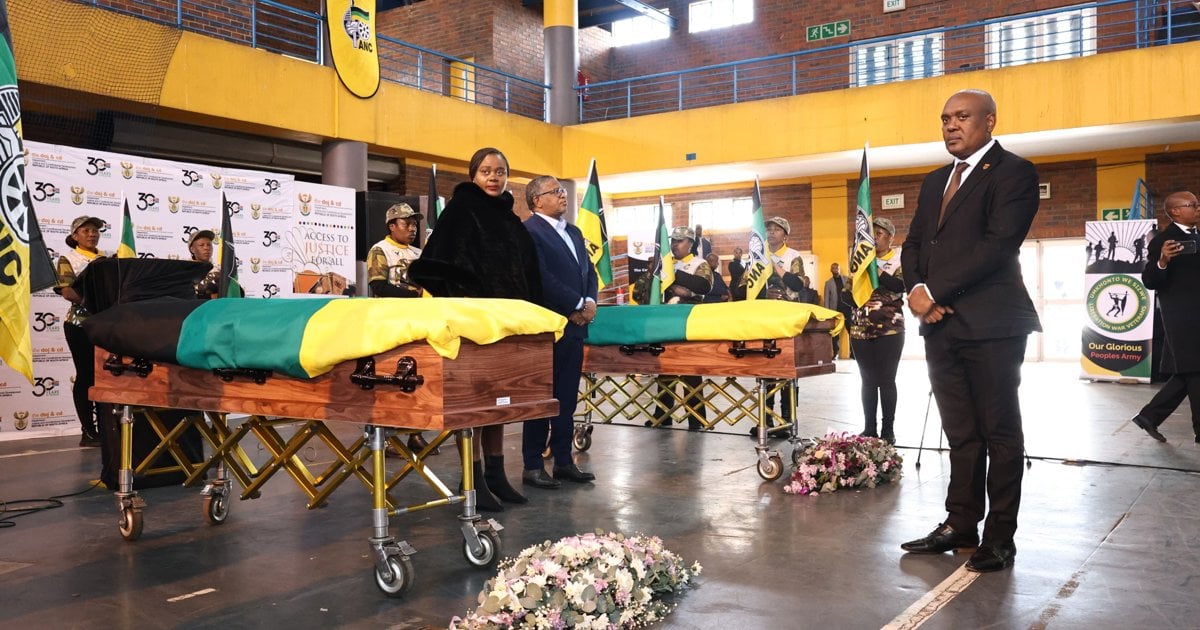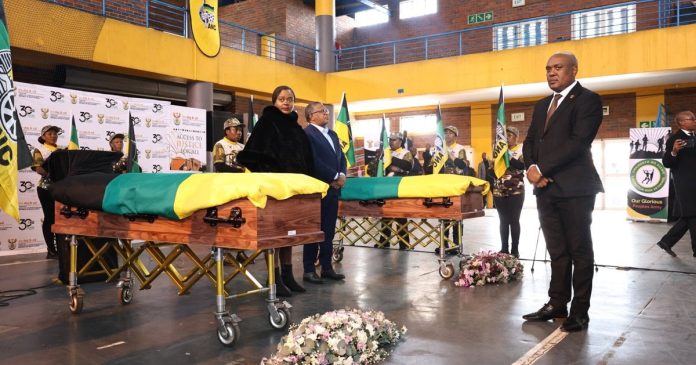
South Africa’s government on Saturday, May 3, returned the exhumed remains of anti-apartheid activist Benjamin Moloise to his family, nearly four decades after his execution by the apartheid regime triggered global outrage.
The handover took place at a solemn ceremony in Soweto, Johannesburg, and included the remains of another African National Congress (ANC) activist, Abraham Mngomezulu, who was also hanged by the apartheid government. The event comes amid renewed attention to politically motivated atrocities committed during white-minority rule, with President Cyril Ramaphosa recently announcing a judicial inquiry into delays in prosecuting apartheid-era crimes.
Moloise was executed in 1985 at the age of 30 after being convicted of killing a security policeman, an accusation he denied. His death sparked riots across South Africa and condemnation from around the world. The United Nations passed a resolution calling for clemency, and Pope John Paul II decried the execution, saying it added “anguish to a persistent situation of objective injustice.”
Mngomezulu, who was 23 when he was hanged in 1989, was sentenced to death after participating in protests against forced evictions during which a person was killed. Both men were buried in unmarked graves without the knowledge or presence of their families.
The Ministry of Justice said the reburial of Moloise and Mngomezulu “marks an important milestone in South Africa’s ongoing journey towards healing, justice, and reconciliation.” Justice Minister Mmamoloko Kubayi, speaking at the ceremony, noted that the remains of 74 other victims executed under the apartheid regime have also been returned to their families for reburial.
“We are determined to ensure that the heroes of our people receive the recognition befitting their contribution to the liberation of black people,” Kubayi said.
Following the end of apartheid in 1994, South Africa established the Truth and Reconciliation Commission (TRC) in 1996 to investigate crimes such as murder and torture. The TRC conducted 2,500 hearings over two years and offered conditional amnesty to perpetrators who fully disclosed their actions. However, relatively few prosecutions have followed.
President Ramaphosa on Wednesday, April 30, launched a judicial inquiry into allegations that there have been intentional delays in prosecuting cases recommended by the TRC. Some inquests have been reopened this year, including that of ANC leader and Nobel Peace Prize laureate Albert Luthuli, who died under disputed circumstances in 1967. An inquest at the time concluded that Luthuli was killed by a train, but renewed investigations seek to clarify the true cause of his death.



